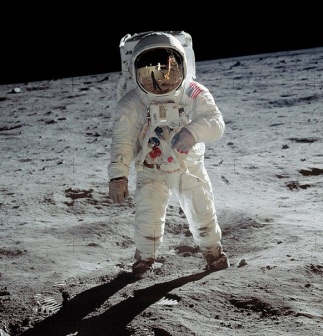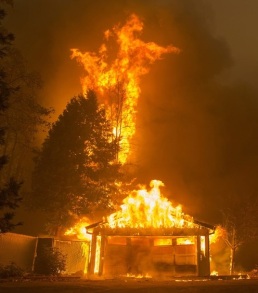What’s the biggest news story of your lifetime?

Has it really been 50 years? (Photo Source: NASA)
For me, two stories have stood above the rest. While both of them took years to play out, they both, by coincidence, culminated in years that ended with 9:
- On July 20, 1969, Neil Armstrong became the first man to walk on the moon. When the Apollo 11 crew returned safely to earth, it fulfilled a goal set by President John F. Kennedy eight years earlier.
- On November 9, 1989, crowds of Germans danced on top of the Berlin Wall — the death rattle for Communist domination of Eastern Europe.
Two more stories
Recently, however, I’ve added two more stories to my list. I wonder if either one will see a turning point, or even a culmination, in this 9 year.
- The earth’s climate is warming, and people are suffering the effects. Almost everyone in the scientific community agrees that the warming is caused by human activity, and that unless we quickly change [our energy consumption], the disastrous effects will be irreversible.
- In Europe and the United States, right-wing nationalist leaders, preying on people’s fears and sowing division, are consolidating power and threatening to turn democracies into authoritarian states.

Paradise, California – November 2018. Will climate change end up being the top news story of the 21st century? (Photo Source: NBC News)
I don’t know whether either story will end happily, as my first two stories did. But I know that happy endings are possible only if we, the people, demand openness and truth from those who hold economic and political power.
I think we all know the truth about climate change. But because so many powerful people pretend not to know, or simply don’t care, we risk doing grave damage to the world our children and grandchildren will inhabit.
Would-be authoritarian leaders, of course, consolidate power by distorting the truth: by gaslighting, and by suppressing facts they deem to be inconvenient. They get away with it when we, the people, don’t call them to account.
Truth: worth fighting for
For years, I’ve said and written that truth is absolute, that it’s a cornerstone of a free society, and that it’s worth fighting for.
But, to my dismay, I’ve seen that a lot of people simply don’t care about truth. I’m not talking now about the would-be dictators. I’m talking about ordinary citizens who simply shrug their shoulders, comfortable to live in ignorance.
Whether you believe in making New Year’s resolutions or not, I hope that in this 9 year you’ll resolve to speak up for truth and, if necessary, fight to defend it. I have.

